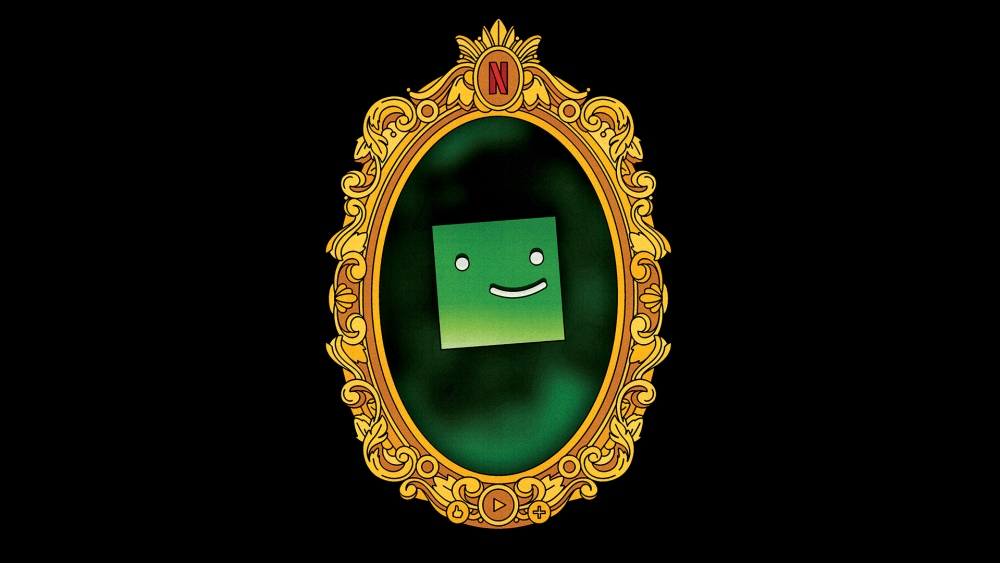
CBS is out; Netflix is in.
Nothing encapsulates the tumult in television these days more than the fact that CBS, one of the pillars of network television, has decided not to attend the industry’s traditional upfront week — when media giants make glitzy programming presentations to prospective advertisers — while Netflix will make its debut.
A year ago, when Netflix announced it would launch a subscriber tier supported by advertising, it was a seismic event in the history of the industry’s leading streamer. But so far, there’s been no quaking on Madison Avenue.
Five executives familiar with recent negotiations between advertisers and media companies say the Netflix offering is not likely to play a significant role in the industry’s next upfront market, when media companies try to sell the bulk of their commercial inventory for the coming season. Netflix’s ad-supported tier, which debuted in the U.S. in November, doesn’t have enough subscribers to generate the sizable crowds that blue-chip advertisers demand.
“Our move into advertising is pretty modest in terms of crawl, walk, run — and we’re definitely in the crawl phase,” Ted Sarandos, co-CEO of Netflix, says.
Even so, Netflix is taking a significant and symbolic swing this week. On May 17, a time slot that has for years been reserved for CBS’ showcase at Carnegie Hall, Netflix will join the parade of media companies pitching their wares to advertisers during upfronts week. (CBS, now part of Paramount Global, opted to host a series of smaller events in multiple cities this year.) Netflix’s plan to host a live event at the Paris Theater in midtown Manhattan, though, was scuttled at the last minute by the threat of a picket by the Writers Guild of America amid the ongoing writers strike.
Netflix is taking to the upfront at a momentous time. Executives on both sides of this year’s sales process concede they are entering a buyer’s market, with advertisers holding tighter to their dollars than they have during past upfronts. Many executives believe difficult economic conditions will encourage sponsors to tamp down their ad spending in the belief that ad prices won’t rise sharply later this year.
Netflix has already unveiled innovations that will catch marketers’ attention as the streamer’s ad-supported audience grows. Sponsors can pick a particular programming genre to which they may attach commercials and can even tag specific episodes in a series that might play best with a particular message or offer. Advertisers can also delineate a consumer age range, gender, or specific city, state, or marketing region.
Other ad deployments hint at the way Netflix might be able to place commercials in the future. One plan gives advertisers the chance to buy the first pre-roll impression that a subscriber sees on a specific calendar day. Another puts a commercial alongside the Netflix Top 10 list of the most-watched programs on any given day.
This stuff isn’t cheap, comparatively speaking. According to the various media executives, Netflix made an initial offer to marketers that called for a rate of $60 per thousand people reached, a metric known as a CPM that is central to most discussions about video advertising. But that figure is high, the executives advise; the CPM for most other ad-supported services is typically in the $20 to $30 per thousand range. Some executives suggested advertisers who did deals with Netflix may have done so for CPM’s priced at $50 or under. Netflix declined to make Jeremi Gorman or Peter Naylor, two of executives overseeing its ad-sales outreach, available for comment.
Ultimately, it’s the small number of consumer impressions that limit what Netflix can really do. A March report from Bloomberg suggested the company’s ad-supported tier had reached 1 million subscribers – a figure media buyers seem to be using in their calculations. But data culled by Antenna, a provider of subscription-service data, puts the number of subscribers to Netflix’ ad supported tier at around 938,000. That figure is smaller than estimated subscribers to Disney’s ad-supported Hulu and Disney+ (20.9 million) NBCUniversal’s ad-supported Peacock (15.5 million); 10.7 million to ad-supported Paramount+ (10.7 million; and Warner Bros. Discovery’s ad-supported tiers (7.2 million).
Some executives have suggested that the Netflix subscriber level is too small at present to meet guarantees it might have made to early sponsors. And they believe the condition may have resulted in clients getting money back, or, in some cases, not being billed immediately.
So why get involved with Netflix now? Despite the high pricing and low impressions, advertisers feel it’s only a matter of time before the streamer does something big — just like it did after it was dismissed by then-Time Warner CEO Jeff Bewkes in 2010. “It’s a little bit like, is the Albanian army going to take over the world?” the executive said at the time. “I don’t think so.” Those words haven’t aged well.
Putting a stake in the ground with Netflix –if one can stomach the high rates – may lead to better things in years to come. “Any sort of growing pains for their ad-supported product should have been expected, but are not insurmountable,” says David Sederbaum, executive vice president and head of video investment at Dentsu Media US, a large ad buyer that works for General Motors and Heineken, among others. He adds: “If they haven’t lived up to some initial forecasts, they have worked with us to make sure we are comfortable in what is ultimately landing.” Even Netflix knows what it’s like to start small.











